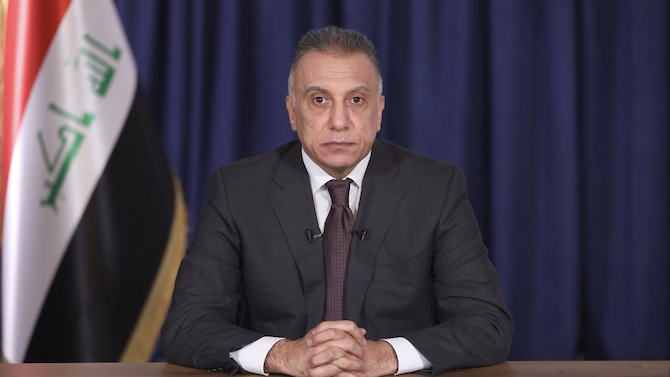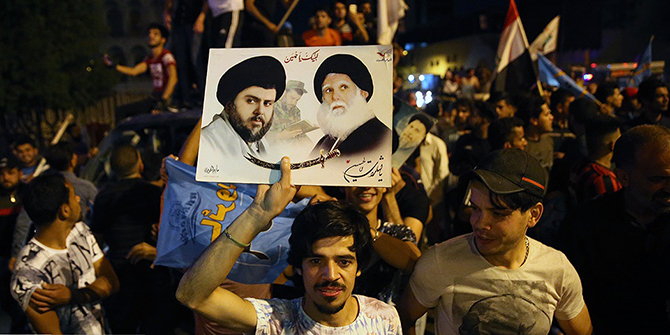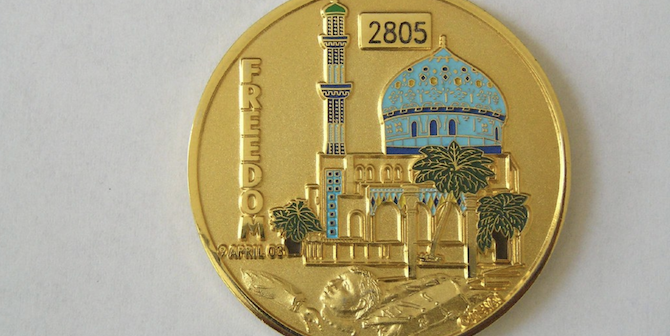by Muhammad Al-Waeli

Iraqi Prime Minister Mustafa Al-Kadhimi has been in office for only two weeks, but his style of governance is becoming clearer through the heavy signalling campaign he has been engaged in since day one in office. This is important to note as Kadhimi represents a generational transition in Iraqi leadership. While he was not one of the protest leaders, he also is not from the political elite many have become familiar with after the fall of Saddam’s regime.
In his first speech to the Council of Representatives, Kadhimi sent a few positive messages, including announcing his intention to work with the protestors, promising to choose a minister of oil from Basra Province (from where most of the country’s oil wealth comes), and pledging to hold free elections as soon as possible.
The day after being confirmed as prime minister, Kadhimi made an appearance at the Directorate of Public Pensions. This visit was significant as it symbolised his understanding of the economic crises he inherited and showed he intended to speak directly to affected citizens to reassure them. However, the symbolism went further as the visit resulted in a number of clips and pictures that caught the attention of many. One video showed him calling his older brother and warning him against intervening in public affairs, after finding out that he was in contact with the head of the agency. While opinions varied between ‘the whole affair was staged’ and ‘he was too harsh to his brother’, the message Kadhimi wanted to send was clear: one of his top priorities to tackle is nepotism and favouritism, starting with his inner circle.
This does not necessarily mean the ability to achieve tangible progress in Iraq’s public sector, known for its ineffectiveness and inefficiency. However, choosing to address the issue of corruption (especially the soft type) early on by using this approach is notable: he has intentionally put himself in a spot where the public will watch closely and will expect results.
Another decision revealing his style of governance was the decision to reinstate Staff Lieutenant General Abdul Wahab Al-Sa’adi to the Counter Terrorism Service (CTS) and make him the head of the service, after the previous Prime Minister Adel Abdul-Mahdi had transferred Sa’adi to the Ministry of Defence, a step seen by many as a demotion. This created a rift between Abdul-Mahdi and Sa’adi, which contributed to igniting nationwide protests last October.
Kadhimi’s decision to bring Sa’adi back to the CTS was not only a countermeasure against the recently increasing Daesh attacks in the country’s northern regions, but also seen as an attempt to appeal to the protesters, given the popularity of Sa’adi from his exploits during the war against Daesh. This is in line with the prime minister’s announcement to release detained protesters, and his request to the judiciary to cooperate in the release of those already sentenced. Kadhimi’s move was a clear attempt to reach out to the protestors and calm the streets, as demonstrations are slowly resuming despite the threat of COVID-19 and the curfew measures imposed.
The symbolism in Kadhimi’s premiership reached its peak when he concluded his visits to military institutions with a trip to the Popular Mobilisation Committee, the leadership of the Hashd al-Sha’abi. Catching some by surprise, the prime minister wore a beige military jacket with the Hashd insignia stitched on it, in an effort to reach out to more conservative Iraqis who had been wary of Kadhimi’s premiership. As he put the jacket on, Kadhimi stated ‘Let Daesh know that we are ready.’
The leadership vacuum caused by the US assassination of Abu Mahdi Al-Muhandis, the deputy head of the Hashd, caused a rift within different factions inside the organisation, who can be roughly divided between supporters of the religious authority in Najaf versus those who lean towards the political-religious leadership in Tehran. What was notable during Kadhimi’s visit was that leaders of both groups were seen meeting with the prime minister. Furthermore, not too long ago there was a belief that Kadhimi himself had participated in the effort to assassinate General Qasem Suleimani and Muhandis, a rumour that made his nomination for prime minister even more challenging.
Kadhimi’s visit confirmed that the Hashd will play its role in preventing a resurgence of Daesh. It also silenced any talk about Kadhimi’s alleged involvement in the assassination of Muhandis. Furthermore, there are clear intentions to unify and resume the institutionalising of the Popular Mobilisation Forces, an effort that was hampered through targeting it militarily and internationalising the issue. Achieving progress in this regard while conducting talks with the US will go a long way towards cementing the role of Kadhimi as an effective Commander-in-Chief who can control the Hashd and reshape US policy towards Iraq.
One important issue to point out here is that Kadhimi won’t be able to deviate much from the current governance system in order to deal with the challenges the country is facing. As former Prime Minister Haider Al-Abadi’s experience showed, radical moves could eventually backfire without enough political backing, something that is even more challenging for Kadhimi to garner given that he did not run in the elections and is a transitional prime minister heading a broad coalition government.
Therefore, expectations about what Mustafa Al-Kadhimi can achieve on the ground needs to be realistic. It is better for Kadhimi to focus on a few critical issues and deliver than to be too ambitious but end up achieving little. This is important because Kadhimi’s large style of symbolism may backfire and reignite the frustration of citizens if all governance is just symbolic.







8 Comments